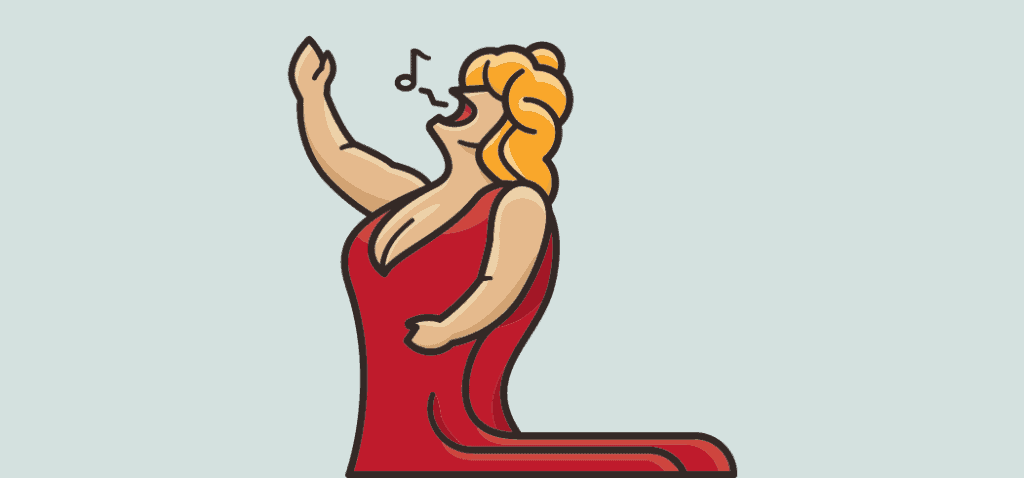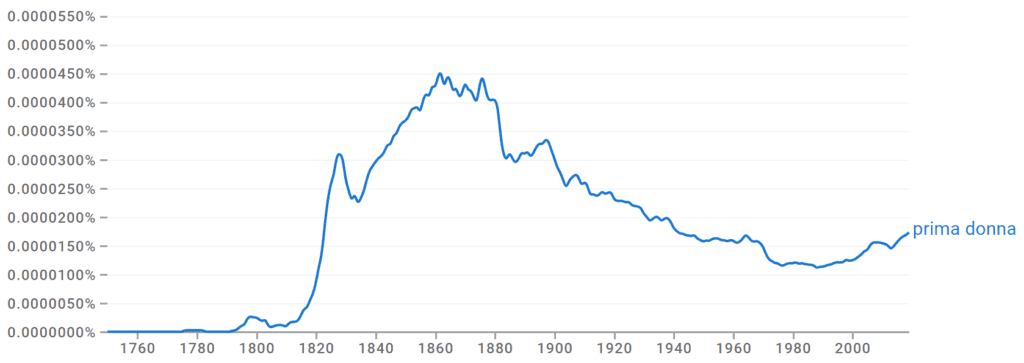There are many terms used in English that are recognized worldwide due to being borrowed from other languages. These are usually words or phrases that are very specific to what they are referencing and lose their unique meaning when translated.
Prima donna is one such word. Originally used to describe an Italian opera singer, it has been adapted into multiple languages to mean various things.
Let’s take a closer look at the origin of this word, what it means, and how it can be used in your own speech and writing.
What Does Prima Donna Mean?
Prima donna is literally translated from Italian to mean “first lady.”
Traditionally, prima donna refers to the leading female singer in an opera company. The prima donna receives the best or prime roles.
The term prima donna began in nineteenth-century Italy to describe the principal soprano of an opera company. This is an important, leading role in opera. Naturally, these singers were popular both on and off the stage – similar to the modern-day admiration and idolization of actors, actresses, and athletic figures.
Like modern-day personalities, these troupe members often thought highly of themselves both on and off stage, often becoming demanding in their treatment.
Over time, the term prima donna has come to mean a temperamental or demanding person or a diva who insists on special treatment.
Prima Donna Origins
Prima donna is a noun that originates from the combination of two words: prima and donna.
Prima comes from a late 14th-century old French term prime, from the Latin primus, literally meaning “first, the first, or first part.” It also was used to mean “noble, excellent, principal, or distinguished,” thus lending itself to its adaptation to explain an important figure.
Donna comes from the 11th-century word dame, meaning “mother or a woman of high rank or social position.” This is derived from the Latin domna meaning “lady or mistress of the house,” as domas translates literally to house.
From the 14th century on, dame was used to describe a woman.
Prima donna became a recognized term in the late 18th century to indicate the first lady or principal female singer of opera.
By the mid-19th century, we began to see the term used to describe a temperamental, demanding person of either gender. Today, the term is used to both describe a lead female opera singer and as slang to indicate an overly dramatic, problematic person.
How Is Prima Donna Used in a Sentence?
- Are those girls just a bunch of prima donnas, or do they have actual, valid concerns about how the instruction is presented in class?
- The actress, a notoriously demanding prima donna (who has a history of temper tantrums during filming), hilariously tried to make her political opinions relevant to the public.
- Comical and entertaining, the newest addition to the local theater concerns the dramatic abduction of a troupe’s prima donna and their hilarious escapades while deciding if the drama queen is worth rescuing.
- Despite being a prima donna in all senses of the word, nobody could dispute the raw singing talent of the opera’s lead: Michaela Smythe-Bluth.
- His addition to the soccer team was a breath of fresh air to his teammates, who had become disgusted with the antics of the prima donna he replaced.
Let’s Review
Prima donna was originally used to describe the “first lady” of the opera or lead soprano singer. An important role, over time, it became synonymous with describing a person who displays unacceptable, dramatic antics of emotion.



Comments are closed.